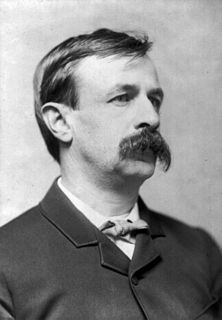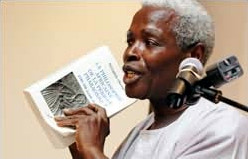A Quote by Epicurus
There is no such thing as justice in the abstract; it is merely a compact between men in their various relations with each other, in whatever circumstances they may be, that they will neither injure nor be injured.
Related Quotes
That nations that have gone for equality, like Communism, have neither freedom nor justice nor equality, they've the greatest inequalities of all, the privileges of the politicians are far greater compared with the ordinary folk than in any other country. The nations that have gone for freedom, justice and independence of people have still freedom and justice, and they have far more equality between their people, far more respect for each individual than the other nations. Go my way. You will get freedom and justice and much less difference between people than you do in the Soviet Union.
Education as the practice of freedom--as opposed to education as the practice of domination--denies that man is abstract, isolated, independent and unattached to the world; it also denies that the world exists as reality apart from people. Authentic reflection considers neither abstract man nor the world without people, but people in their relations with the world. In these relations consciousness and world are simultaneous: consciousness neither precedes the world nor follows it.
In order to carry through any undertaking in family life, there must necessarily be either complete division between the husband and wife, or loving agreement. When the relations of a couple are vacillating and neither one thing nor the other, no sort of enterprise can be undertake. Many families remain for years in the same place, though both husband and wife are sick of it, simply because there is neither complete division nor agreement between them.
The essence of justice is mercy. Making a child suffer for wrong-doing is merciful to the child. There is no mercy in letting the child have its own will, plunging headlong to destruction with the bits in its mouth. There is no mercy to society nor to the criminal if the wrong is not repressed and the right vindicated. We injure the culprit who comes up to take his proper doom at the bar of justice, if we do not make him feel that he has done a wrong thing. We may deliver his body from the prison, but not at the expense of justice nor to his own injury.
Why, when the world gets to understand about it I expect that two men or two women, or a man and a woman, will come in here, and say to me, 'We have quarrelled and outraged each other, we have injured our friend, our wife, our husband; we regret, we would forgive, but we cannot, because we remember. Put between us the atonement of forgetfulness, that we may love each other as of old.'
Peace is not merely the absence of war. Nor can it be reduced solely to the maintenance of a balance of power between enemies. Nor is it brought about by dictatorship. Instead, it is rightly and appropriately called "an enterprise of justice" (Is. 32:7). Peace results from that order structured into human society by its divine founder, and actualized by men as they thirst after ever greater justice.
Reason, in a strict sense, as meaning the judgment of truth and falsehood, can never, of itself, be any motive to the will, and can have no influence but so far as it touches some passion or affection. Abstract relations of ideas are the object of curiosity, not of volition. And matters of fact, where they are neither good nor evil, where they neither excite desire nor aversion, are totally indifferent, and whether known or unknown, whether mistaken or rightly apprehended, cannot be regarded as any motive to action.
Neither numbers nor powers nor wealth nor learning nor eloquence nor anything else will prevail, but purity, living the life, in one word, anubhuti, realisation. Let there be a dozen such lion-souls in each country, lions who have broken their own bonds, who have touched the Infinite, whose whole soul is gone to Brahman, who care neither for wealth nor power nor fame, and these will be enough to shake the world.
By whatever means it is accomplished, the prime business of a play is to arouse the passions of its audience so that by the route of passion may be opened up new relationships between a man and men, and between men and Man. Drama is akin to the other inventions of man in that it ought to help us to know more, and not merely to spend our feelings.
Fear destroys intimacy. It distances us from each other; or makes us cling to each other, which is the death of freedom.... Only love can create intimacy, and freedom too, for when all hearts are one, nothing else has to be one--neither clothes nor age; neither sex nor sexual preference; race nor mind-set.






































